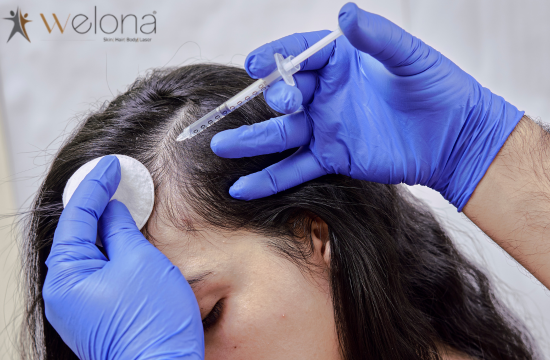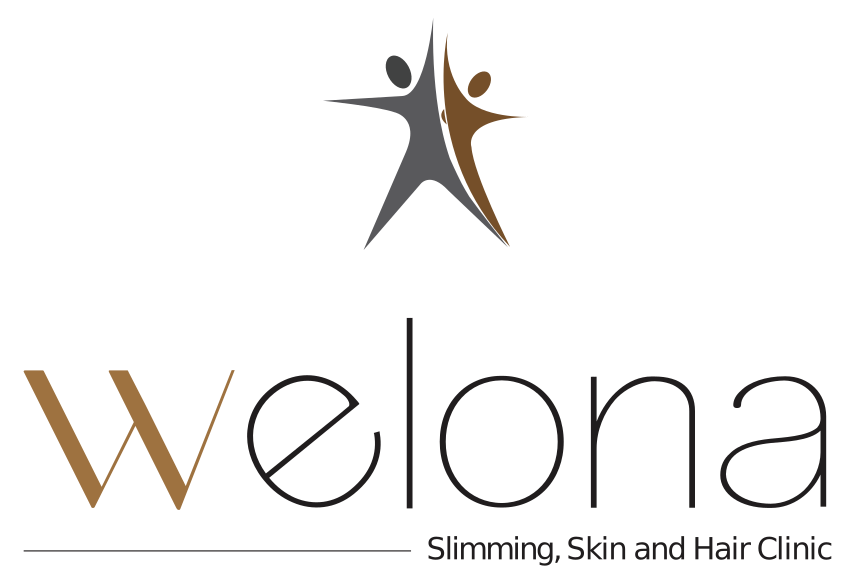Hair thinning in women can feel like a slow battle, with a few extra strands on your brush with every stroke. One day, you tie your hair into a thick ponytail, and before you know it, that same ponytail seems half its size. For women, this can be a frustrating, emotional experience that affects confidence and self-image.
That is why it is vital to act early. The sooner you start caring for thinning hair, the easier it is to stop it from worsening. Good scalp care and the right treatments can help keep your hair healthy and thick for longer.
The gradual decline or sudden hair loss is your body signaling something more. In this article, we will discuss some of the most common causes behind hair thinning in women, from hormones to lifestyle, and how treatments at Welona in Chennai can help you with healthier and fuller hair.

Most Common Causes Behind Hair Thinning in Women
1. Hormonal Imbalances
Hormones play a crucial role in maintaining hair health. Events like pregnancy, childbirth, menopause, or conditions such as polycystic ovary syndrome (PCOS) often cause hormonal fluctuations that lead to thinning hair. For example, many women experience a significant amount of hair loss after pregnancy, a condition known as telogen effluvium.
2. Nutritional Deficiencies
Your hair requires proper nutrients to grow strong and healthy. If your body is not getting the right nutrients, your hair will suffer. Iron deficiency is a significant contributor to hair thinning in women. Similarly, low protein intake, vitamin D deficiency, zinc deficiency, or biotin deficiency may also be contributing factors. Crash diets and irregular eating patterns can also disrupt hair growth.
3. Stress
Physical or emotional stress triggers your body to enter a “survival mode,” which can divert energy away from hair growth. Prolonged stress triggers a type of hair loss called telogen effluvium, where more hair than usual enters the resting phase and eventually sheds. It hits a few months after a stressful event like surgery, a breakup, job loss, or even post-COVID recovery.
4. Genetics
Unfortunately, hair thinning can run in families. If your mom or grandma dealt with hair thinning, there’s a chance you might, too. Female pattern hair loss (androgenetic alopecia) typically develops gradually and is often inherited.
5. Medical Conditions and Medications
Some medical conditions can lead to hair thinning. These include thyroid problems, autoimmune diseases like alopecia areata, and scalp infections. Certain medicinal drugs, especially those used to treat high blood pressure, depression, or other conditions, can also cause hair loss as a side effect.
6. Overstyling and Heat Damage
High ponytails, tight braids, and frequent straightening or curling may seem harmless in the short term, but can lead to breakage and thinning over time. Chemical treatments like coloring, bleaching, or rebonding can weaken hair shafts and cause long-term damage.
7. Scalp Health
An unhealthy scalp is like bad soil; nothing grows well in it. Conditions such as dandruff, seborrheic dermatitis, psoriasis, or even fungal infections can clog hair follicles and prevent new growth. Sometimes, it’s not just the hair but the skin underneath that needs attention.
Best Hair Thinning Treatment in Chennai at Welona
At Welona, we take hair thinning seriously and understand the emotional toll it can cause. Our science-backed technology and personalized care treat the root cause, not just the symptom. Here is how Welona can help:
- Advanced Hair Analysis: We don’t believe in guesswork. Our team conducts a thorough scalp and hair assessment to understand the underlying cause of your thinning. This helps us create a treatment plan made just for you.
- Platelet-Rich Plasma (PRP) Therapy: This is one of our most sought-after treatments for hair thinning. PRP uses your own blood, rich in growth factors, to stimulate hair follicles and support regrowth. It’s a natural, safe, and effective option.
- Hair Mesotherapy: A fine needle delivers a blend of essential vitamins, minerals, and amino acids directly into the scalp. This nourishes hair follicles, improves blood circulation, and boosts hair growth.
- Nutrition & Lifestyle Counseling: Sometimes, hair thinning is a sign that your body is asking for help. We also guide you on nutritional support, stress management, and hormone health because beautiful hair starts from within.
- Customized Homecare: We recommend only what your scalp needs, nothing more, nothing less. Our dermatologists recommend suitable shampoos, serums, and supplements to support your treatments.
To Wrap It Up
Hair thinning is a relatively common condition in women, but itis essential to remember that there are ways to manage it and that help is available. Common causes, such as hormonal changes, diet, stress, genetics, and lifestyle habits, influence hair health more than you might realize.
Understanding these factors is the first step to finding the right solution. At Welona Clinic in Chennai, you’ll find effective treatments, such as PRP, that help boost hair growth and strengthen the hair you already have. Along with expert advice on nutrition and lifestyle, Welona takes a complete approach to treating hair thinning.
If you have noticed your hair getting thinner, it’s a good idea to talk to the professionals at Welona. The earlier you start, the better your chances of seeing real improvement and regaining confidence in your hair. Book your appointment today!
FAQs: Hair Thinning in Women
1. Is PRP therapy painful?
PRP involves small injections in the scalp and may cause some discomfort, but the procedure is generally well-tolerated.
2. How long does it take to see results from hair-thinning treatments at Welona?
Most clients begin to see noticeable improvement within 2–3 months, although this can vary depending on the severity and underlying cause.
3. Is PRP safe for everyone?
PRP is generally considered safe, as it utilizes your own blood. However, it may not be suitable for individuals with certain blood disorders or active infections. A consultation will help determine if it’s right for you.
4. Will hair thinning treatments cause any side effects?
Most treatments at Welona are safe, with minimal side effects, such as mild redness or scalp sensitivity, which usually fade quickly.


